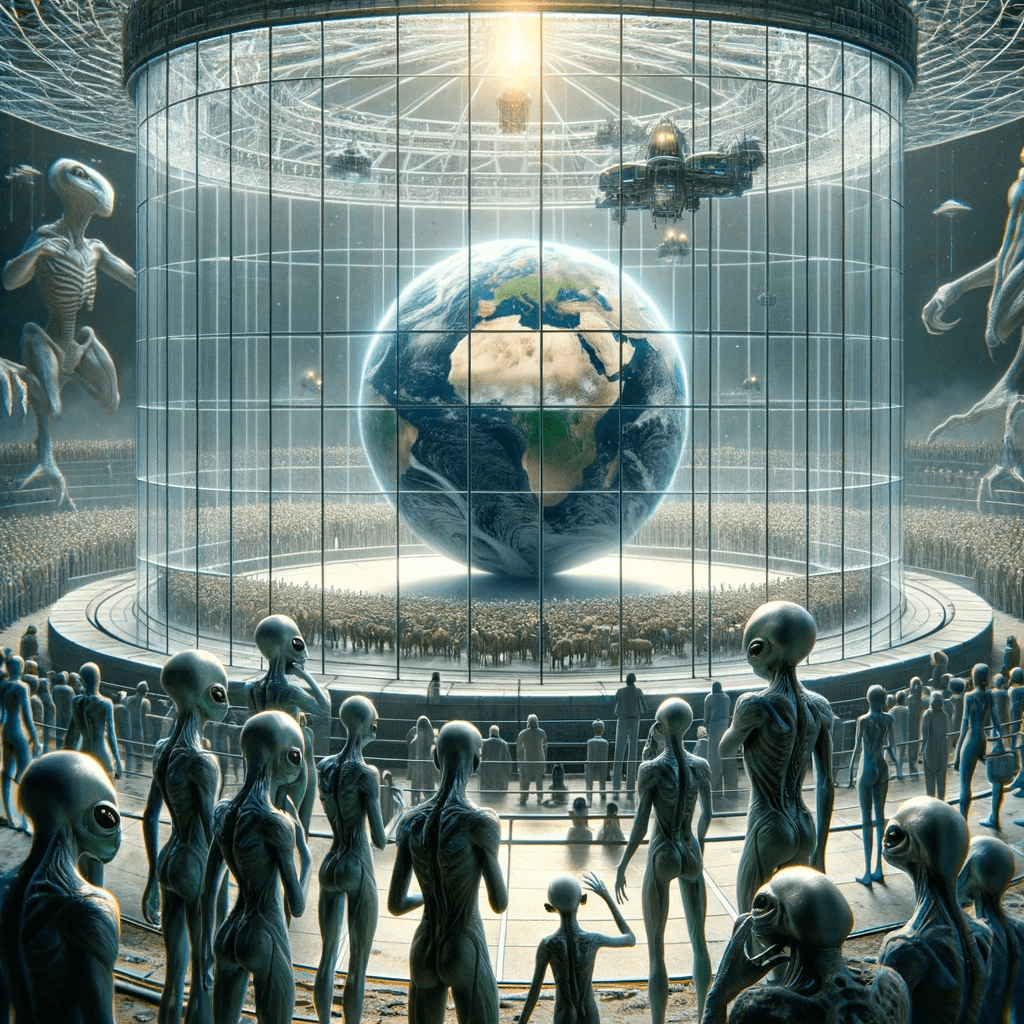The Zoo Hypothesis

The Zoo Hypothesis is a theoretical concept in the field of astrobiology that suggests that highly advanced extraterrestrial civilizations may be observing and studying Earth and its inhabitants without making direct contact. The idea was first proposed by MIT radio astronomer John A. Ball in the 1970s and has since been debated and explored by scientists and researchers in the field.
The Zoo Hypothesis suggests that advanced extraterrestrial civilizations may have the ability to observe Earth and its inhabitants without our knowledge, similar to a zookeeper observing animals in a zoo. This would explain why we have not yet detected any direct evidence of extraterrestrial life or communication despite the vastness of the universe and the possibility of other civilizations existing.
Facts about the Zoo Hypothesis include:
- The concept has been debated and explored by a number of scientists and researchers in the field of astrobiology, including Frank Tipler, Milan Ćirković, and Seth Shostak.
- The Zoo Hypothesis is one of several theories that seek to explain the Fermi Paradox, which is the apparent contradiction between the high probability of extraterrestrial civilizations existing and the lack of evidence for their existence.
- Some proponents of the Zoo Hypothesis suggest that advanced extraterrestrial civilizations may have a moral imperative to avoid making direct contact with Earth and its inhabitants, in order to avoid interfering with the natural development and evolution of our species.
Some experts have argued that the Zoo Hypothesis is a plausible explanation for the lack of direct evidence for extraterrestrial life, given the vastness of the universe and the potential for highly advanced civilizations to exist. Others have been more skeptical of the concept, arguing that it relies on a number of assumptions about the behavior and capabilities of extraterrestrial civilizations that are not necessarily supported by scientific evidence.
One of the claims made by proponents of the Zoo Hypothesis is that the lack of direct evidence for extraterrestrial life suggests that highly advanced civilizations may be deliberately avoiding contact with Earth and its inhabitants. This may be due to concerns about the potential impact that contact could have on our society, or a desire to avoid interfering with the natural development of our species.
There are a number of books and publications that have explored the concept of the Zoo Hypothesis and its implications for the search for extraterrestrial life. One example is “The Eerie Silence” by Paul Davies, which explores the Fermi Paradox and the various theories that have been proposed to explain it, including the Zoo Hypothesis.
There are several other books that discuss the Zoo Hypothesis and its implications for the search for extraterrestrial life. Here are some examples:
- “The Fermi Paradox: Where Are They?” by William Poundstone
- “Alien Universe: Extraterrestrial Life in Our Minds and in the Cosmos” by Don Lincoln
- “The Extraterrestrial Encyclopedia” by Ronald Story
- “Contact with Alien Civilizations: Our Hopes and Fears about Encountering Extraterrestrials” by Michael Michaud
- “The Great Silence: Science and Philosophy of Fermi’s Paradox” by Milan M. Ćirković
- “Extraterrestrial Intelligence: Where is Everybody?” by Ivan Almar and Jill Tarter
These books explore a variety of topics related to the search for extraterrestrial life, including the Zoo Hypothesis, the Fermi Paradox, and the implications of contact with advanced extraterrestrial civilizations.

